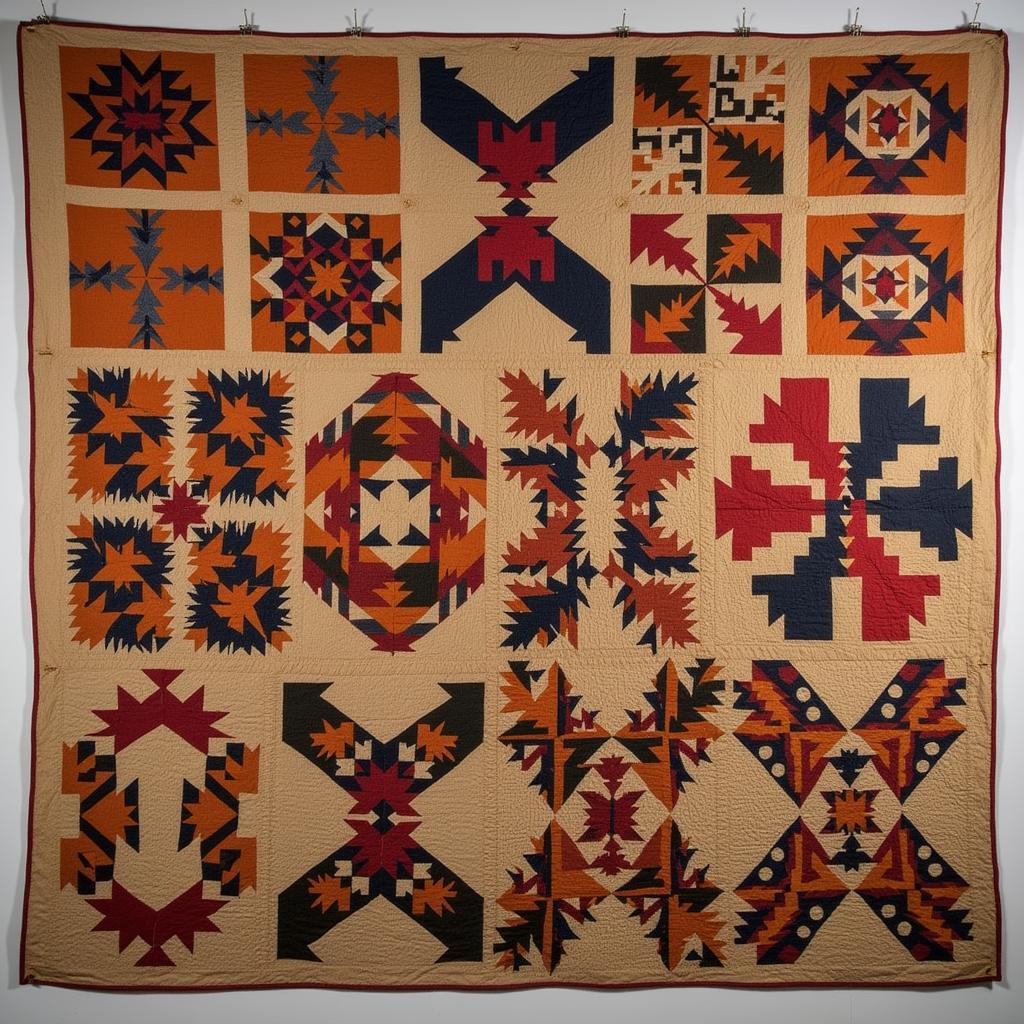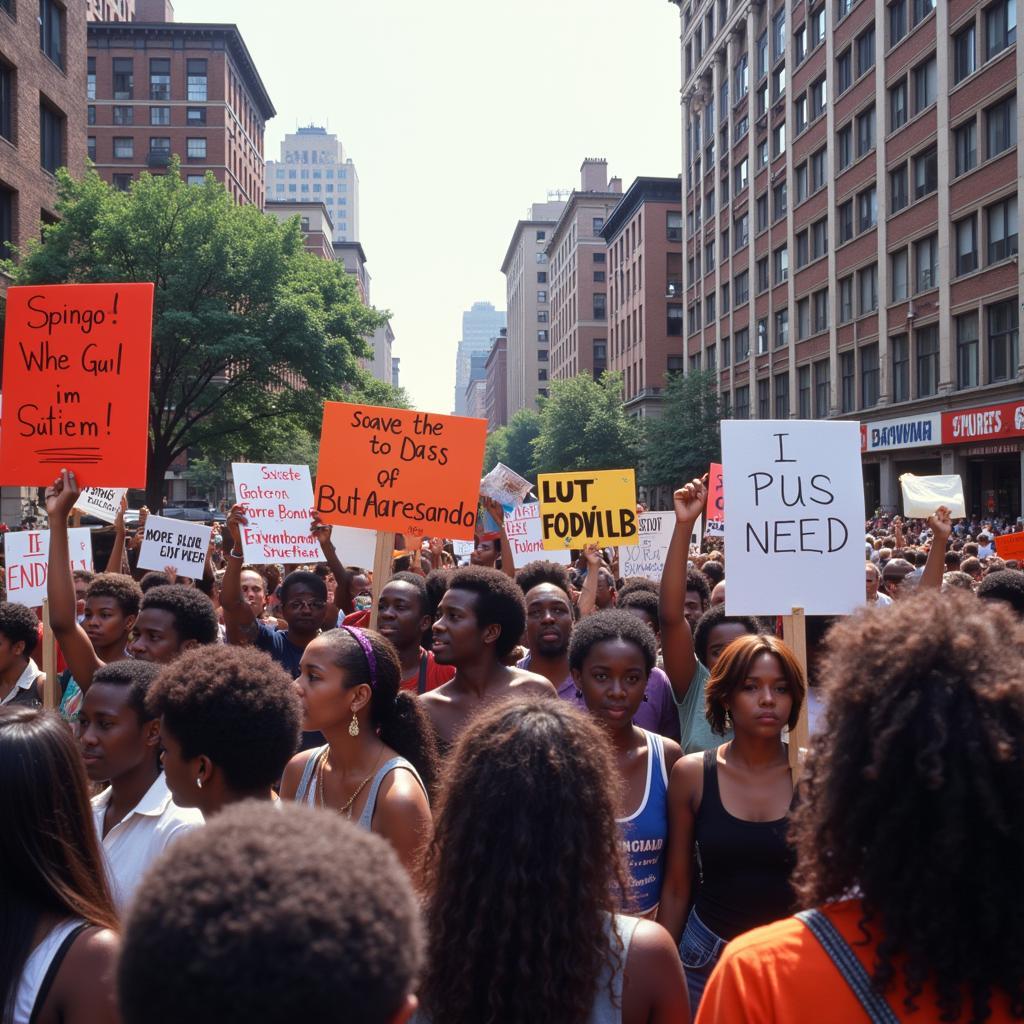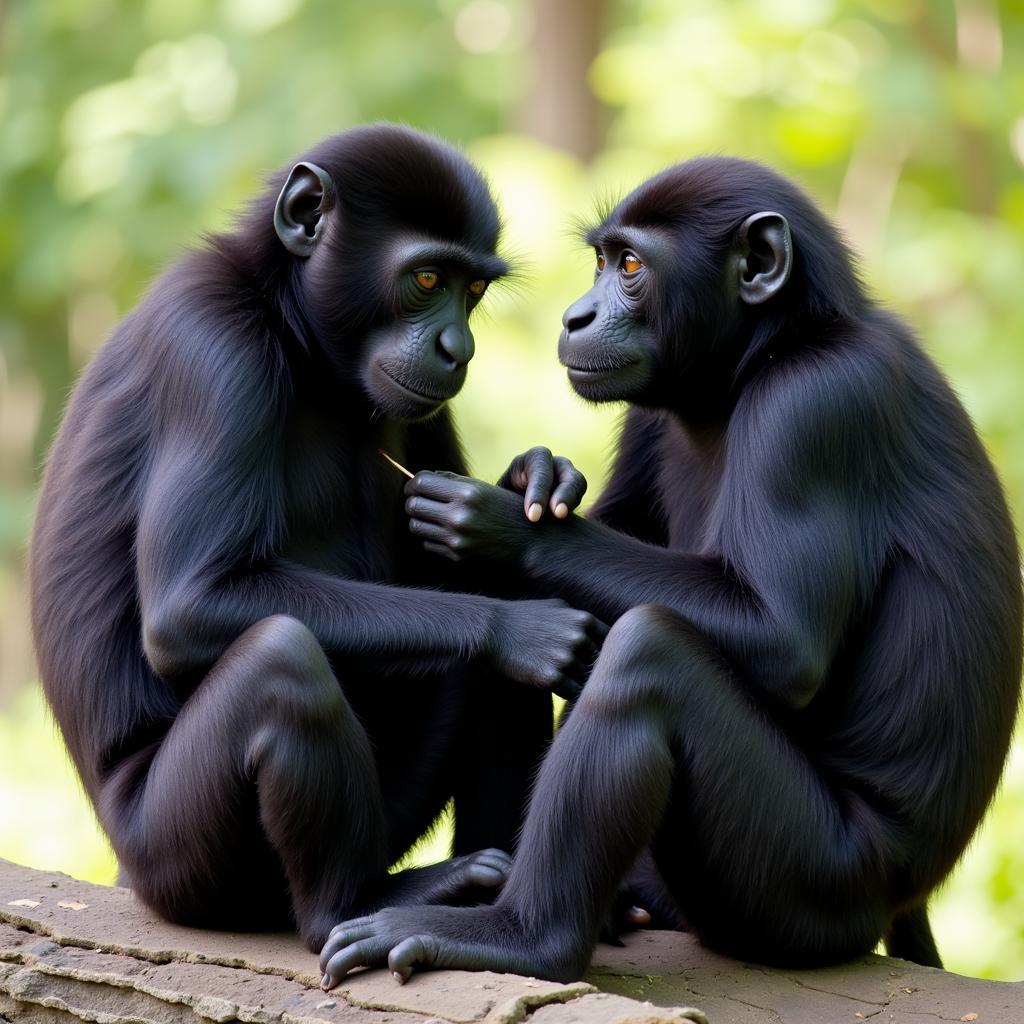Exploring African American Culture Symbols
African American Culture Symbols represent a rich tapestry of resilience, creativity, and heritage. From powerful visual emblems to deeply rooted traditions, these symbols reflect the complex journey and enduring spirit of African Americans. This article delves into the significance of these symbols, exploring their historical context and contemporary relevance.
Understanding the Power of Symbols
Symbols are more than just images or objects; they are powerful representations of shared experiences, beliefs, and values. For African Americans, cultural symbols serve as a testament to their ancestors’ struggles, triumphs, and enduring legacy. They act as a bridge connecting the past to the present and inspiring future generations. These symbols can be found in everyday life, from art and music to fashion and literature. They provide a sense of unity and identity, fostering a strong sense of community.
African American culture symbols often draw inspiration from African traditions, reflecting the deep connection to their ancestral homeland. However, these symbols also incorporate elements unique to the African American experience, shaped by the history of slavery, segregation, and the ongoing fight for civil rights.
 African American Quilt Codes: Symbols of Freedom
African American Quilt Codes: Symbols of Freedom
Key Symbols in African American Culture
Several symbols hold particular significance within African American culture. One such symbol is the Kwanzaa Kinara, a candle holder used during the week-long celebration of Kwanzaa. The kinara holds seven candles, each representing one of the seven principles of Kwanzaa: Umoja (Unity), Kujichagulia (Self-Determination), Ujima (Collective Work and Responsibility), Ujamaa (Cooperative Economics), Nia (Purpose), Kuumba (Creativity), and Imani (Faith). This symbol celebrates African heritage and promotes unity within the community. Another prominent symbol is the raised fist, a powerful gesture of solidarity and resistance against oppression. It has been used throughout history in various social justice movements, signifying strength, defiance, and the fight for equality.
african wedding dresses showcase the beauty and diversity of African cultures. These dresses are often vibrant and intricately designed, reflecting the rich heritage of different African communities.
The Significance of Music and Art
Music and art play a vital role in expressing and preserving African American culture. Spirituals, gospel music, blues, and jazz are powerful forms of artistic expression that have emerged from the African American experience. These musical genres reflect the joys, sorrows, and struggles of a people, serving as a testament to their resilience and creativity.
Visual arts, including painting, sculpture, and photography, also play a significant role in representing African American culture symbols. Artists use their creativity to explore themes of identity, social justice, and the African American experience, creating powerful visual narratives that resonate with audiences worldwide.
Exploring Contemporary Symbols
African American culture symbols continue to evolve and adapt in the 21st century. New symbols emerge, reflecting contemporary issues and experiences. These symbols often find expression through various media, including film, television, and social media. They play a crucial role in shaping conversations around race, identity, and social justice.
african american dolls are also becoming increasingly popular, celebrating diversity and representation. These dolls provide children with positive role models and help foster a sense of pride in their heritage. They also promote inclusivity and understanding of different cultures.
The Future of African American Cultural Symbols
As society continues to evolve, so too will African American culture symbols. These symbols will continue to serve as powerful reminders of the rich history, resilience, and ongoing contributions of African Americans to society. They will continue to inspire, educate, and unite communities for generations to come.
african crown hat has become a powerful symbol of African pride and identity, often worn during cultural celebrations and events.
Conclusion
African American culture symbols represent a powerful tapestry of history, resilience, and creativity. These symbols offer a window into the rich heritage and enduring spirit of African Americans, connecting the past to the present and inspiring the future. By understanding and appreciating the significance of these symbols, we can gain a deeper understanding of the African American experience and its vital contributions to the world’s cultural landscape.
FAQs
-
What are some common African American cultural symbols?
Some common symbols include the Kwanzaa Kinara, the raised fist, and various artistic expressions like spirituals and jazz. -
Why are these symbols important?
They represent shared experiences, beliefs, and values, connecting the past to the present and inspiring future generations. -
How have these symbols evolved over time?
They have adapted to reflect contemporary issues and experiences, often finding expression through new media.
african face scars were once a significant cultural practice in some African communities, representing tribal affiliations, social status, or rites of passage. However, this practice has become less common in modern times.
-
What is the role of art and music in expressing these symbols?
Music and art serve as powerful forms of artistic expression, reflecting the joys, sorrows, and struggles of the African American experience. -
How can I learn more about African American culture symbols?
Further research, visiting museums, attending cultural events, and engaging with diverse communities can enhance your understanding.
african jaguar animal While jaguars are not native to Africa, they are often mistaken for leopards, which are indigenous to the continent. Leopards hold cultural significance in several African societies, symbolizing strength, power, and grace.
For further assistance, please contact us at Phone: +255768904061, Email: kaka.mag@gmail.com or visit us at Mbarali DC Mawindi, Kangaga, Tanzania. We have a 24/7 customer service team.

